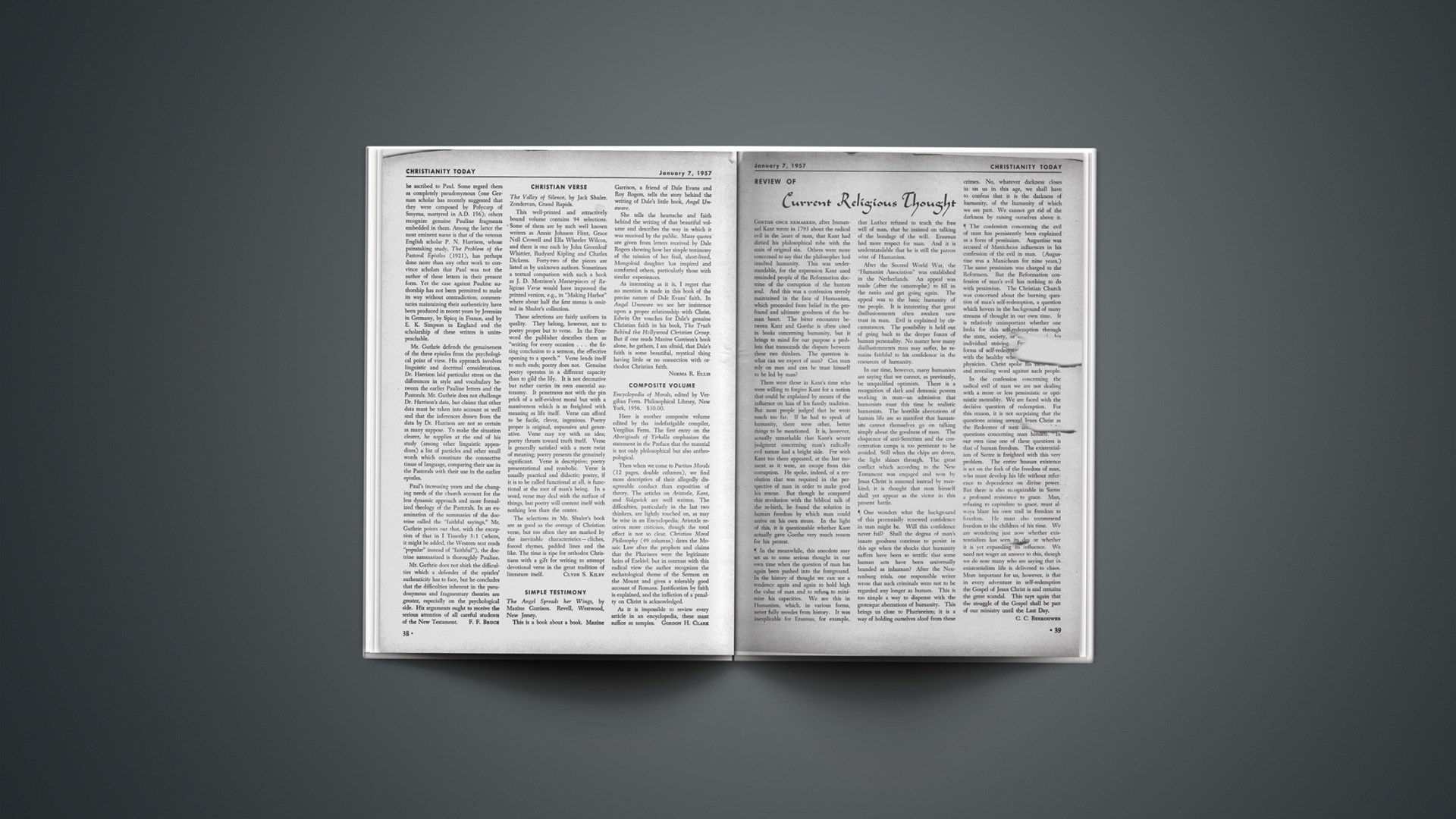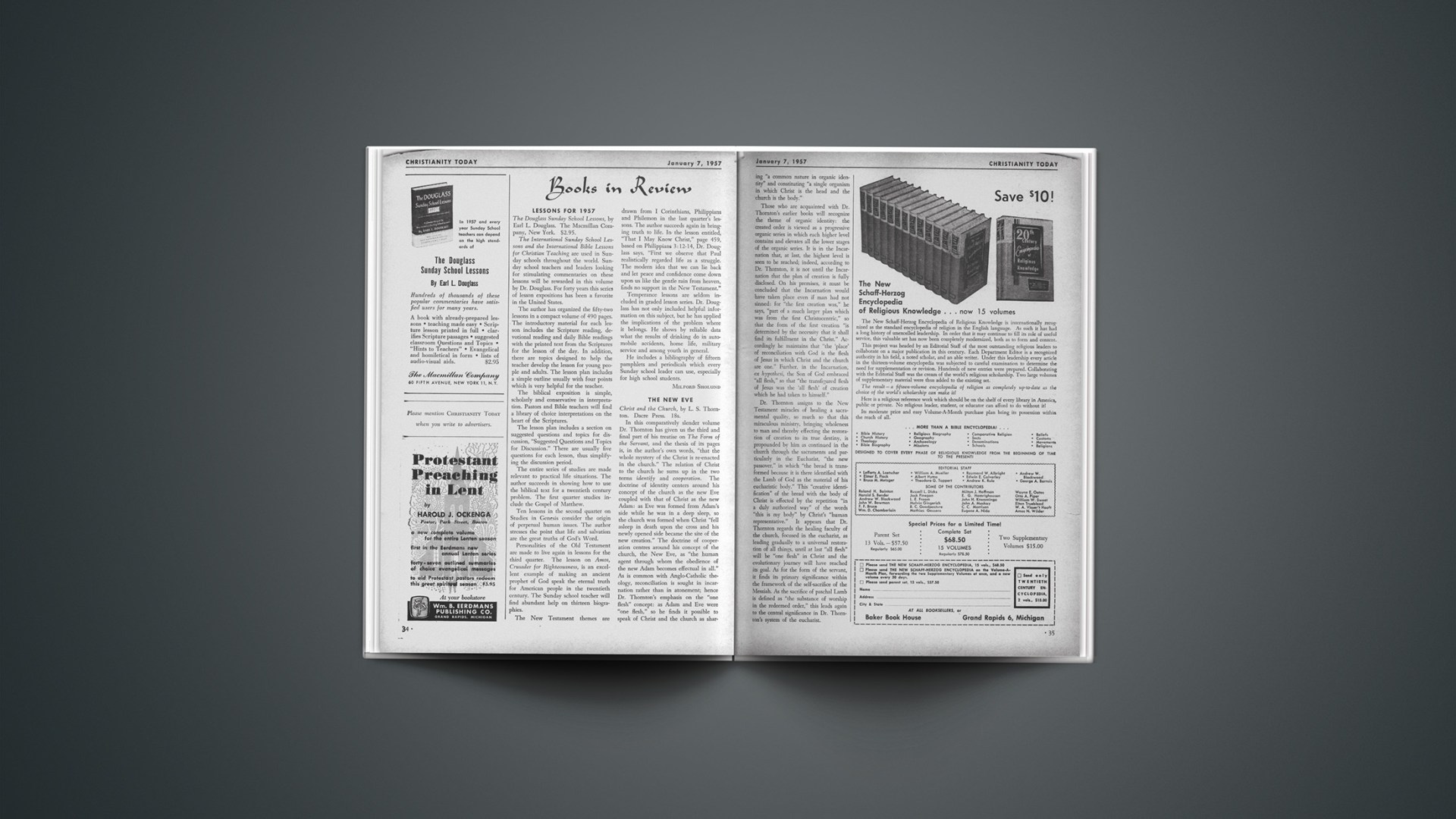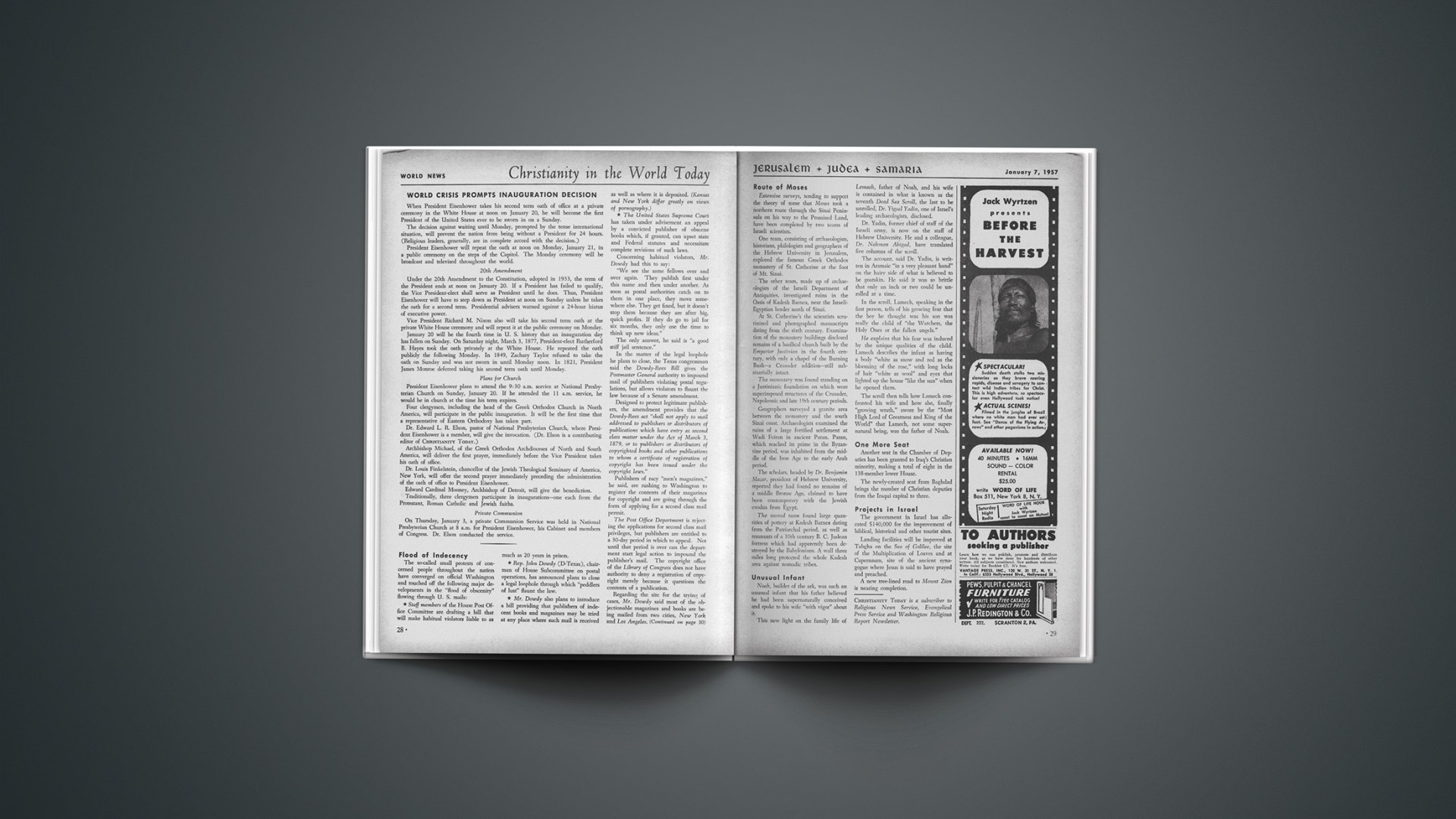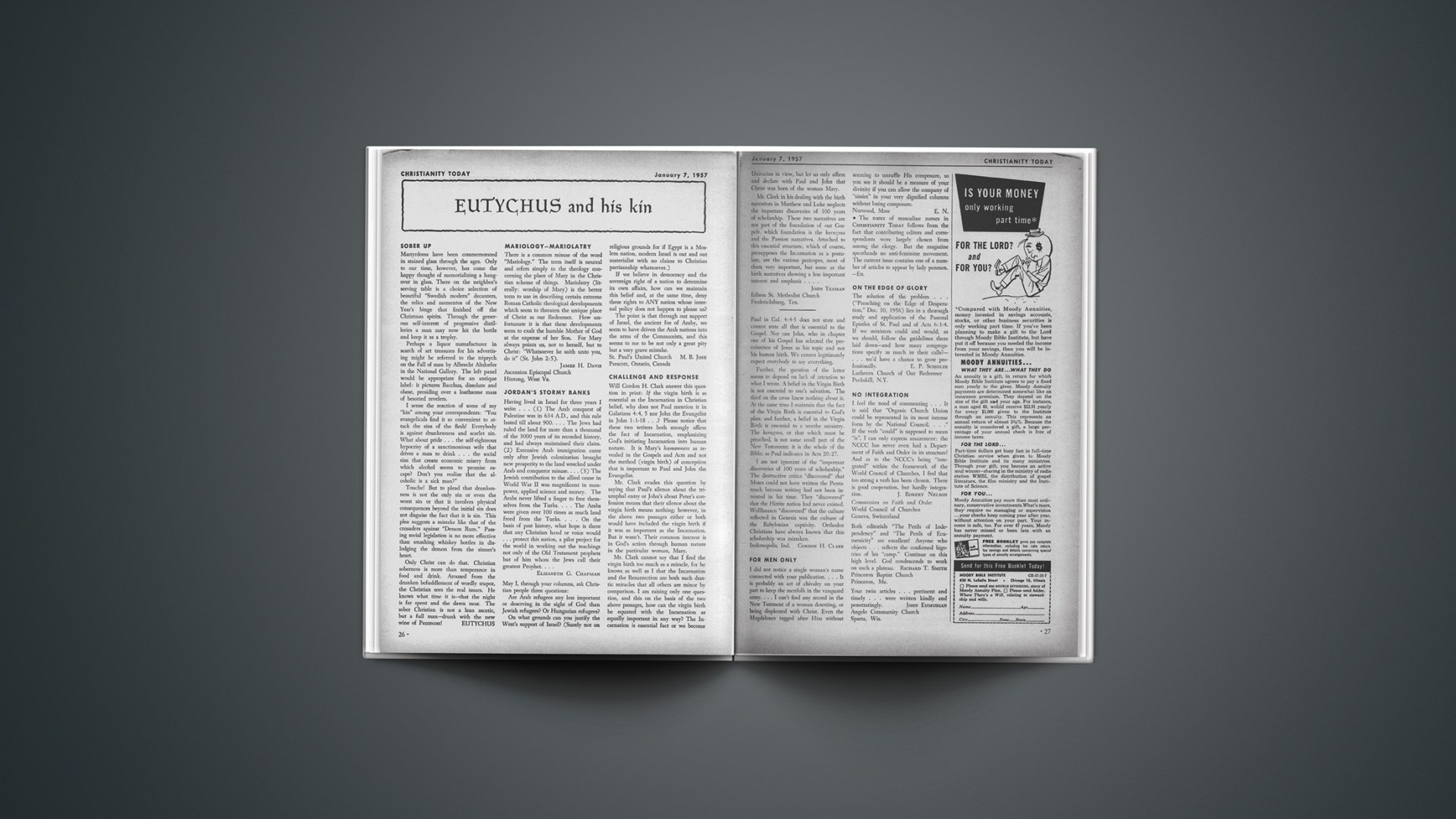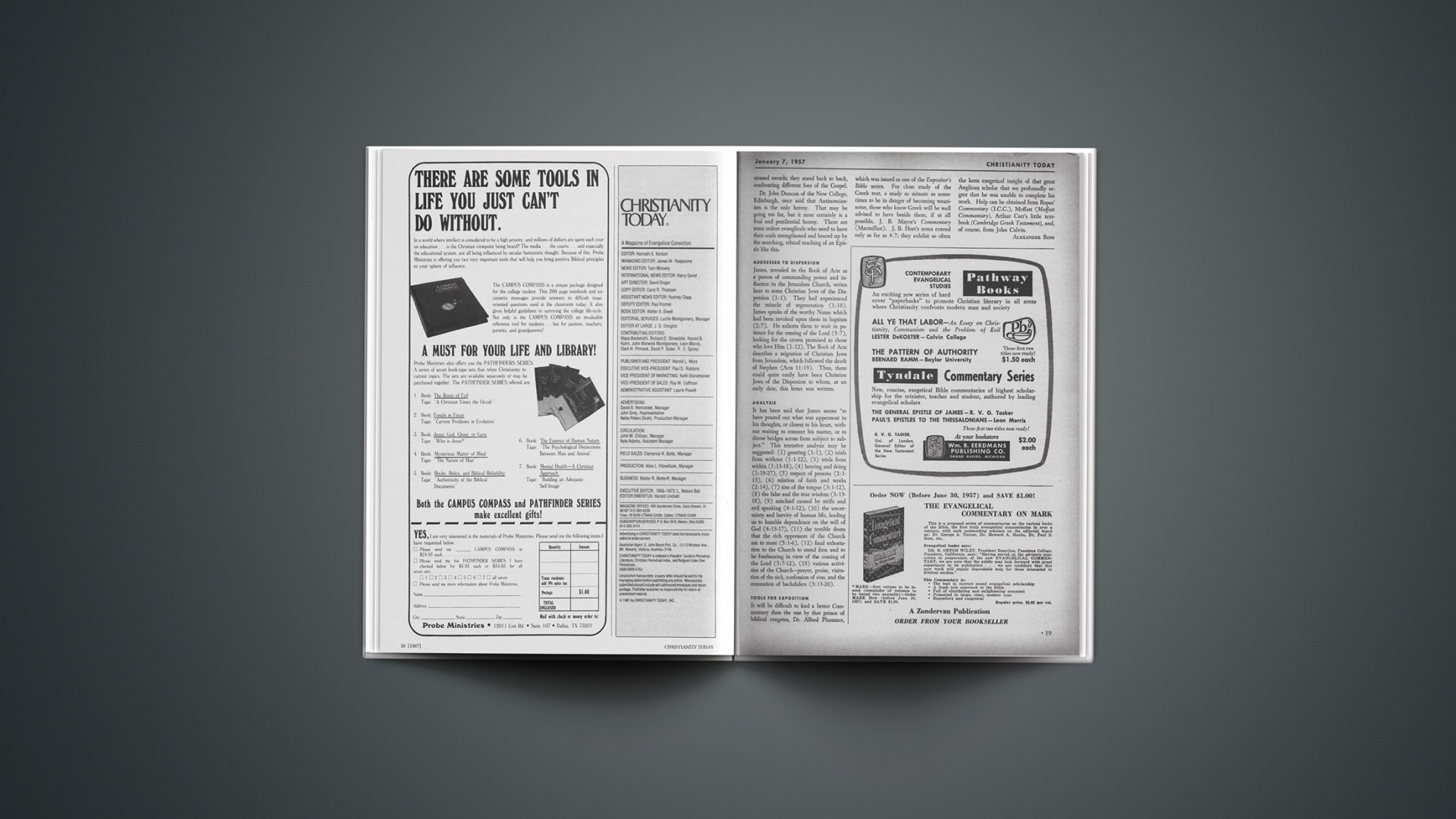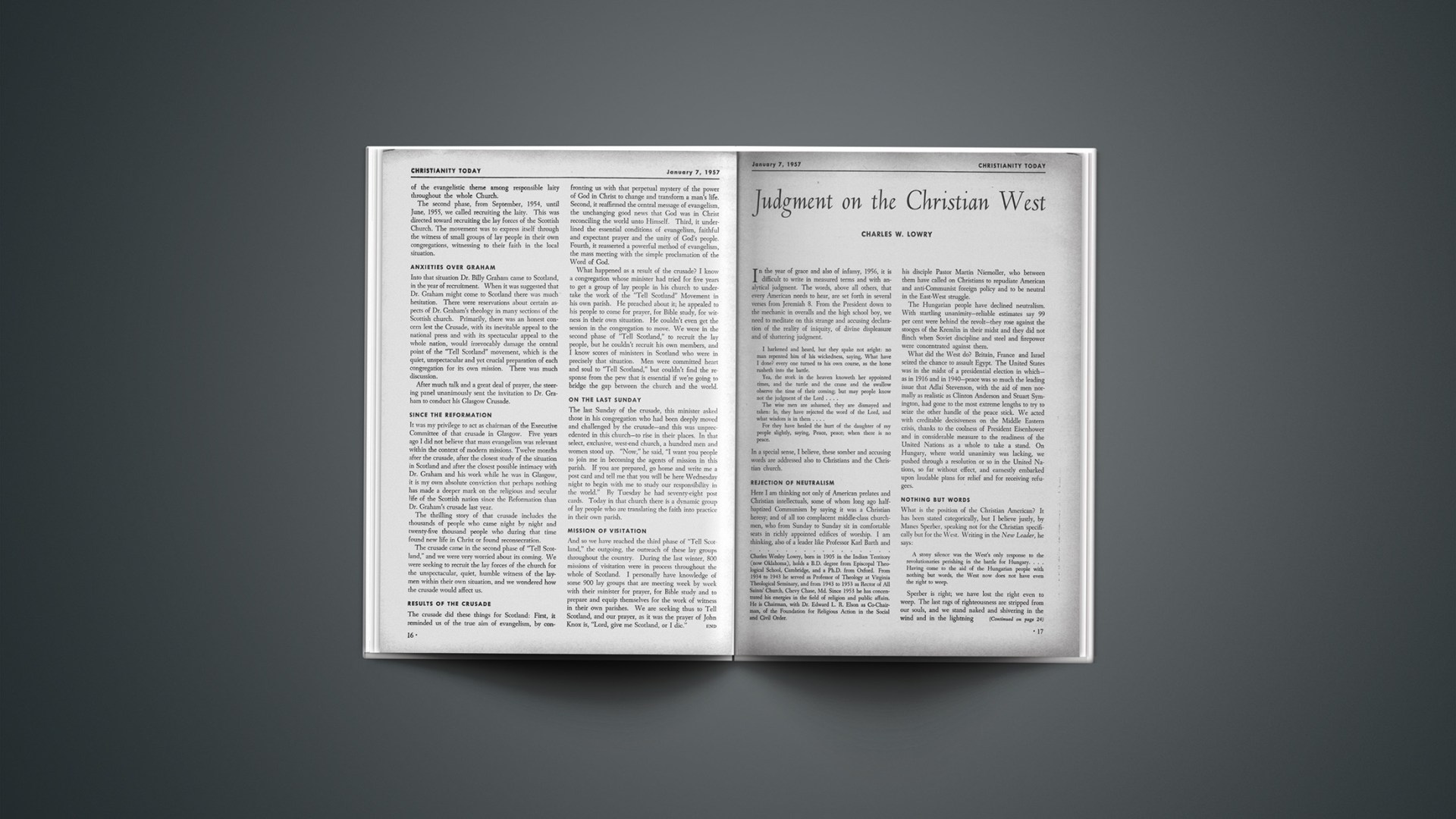Goethe once remarked, after Immanuel Kant wrote in 1793 about the radical evil in the heart of man, that Kant had dirtied his philosophical robe with the stain of original sin. Others were more concerned to say that the philosopher had insulted humanity. This was understandable, for the expression Kant used reminded people of the Reformation doctrine of the corruption of the human soul. And this was a confession sternly maintained in the face of Humanism, which proceeded from belief in the profound and ultimate goodness of the human heart. The bitter encounter between Kant and Goethe is often cited in books concerning humanity, but it brings to mind for our purpose a problem that transcends the dispute between these two thinkers. The question is: what can we expect of man? Can man rely on man and can he trust himself to be led by man?
There were those in Kant’s time who were willing to forgive Kant for a notion that could be explained by means of the influence on him of his family tradition. But most people judged that he went much too far. If he had to speak of humanity, there were other, better things to be mentioned. It is, however, actually remarkable that Kant’s severe judgment concerning man’s radically evil nature had a bright side. For with Kant too there appeared, at the last moment as it were, an escape from this corruption. He spoke, indeed, of a revolution that was required in the perspective of man in order to make good his rescue. But though he compared this revolution with the biblical talk of the re-birth, he found the solution in human freedom by which man could arrive on his own steam. In the light of this, it is questionable whether Kant actually gave Goethe very much reason for his protest.
In the meanwhile, this anecdote may set us to some serious thought in our own time when the question of man has again been pushed into the foreground. In the history of thought we can see a tendency again and again to hold high the value of man and to refuse to minimize his capacities. We see this in Humanism, which, in various forms, never fully recedes from history. It was inexplicable for Erasmus, for example, that Luther refused to teach the free will of man, that he insisted on talking of the bondage of the will. Erasmus had more respect for man. And it is understandable that he is still the patron saint of Humanism.
After the Second World War, the “Humanist Association” was established in the Netherlands. An appeal was made (after the catastrophe) to fill in the ranks and get going again. The appeal was to the basic humanity of the people. It is interesting that great disillusionments often awaken new trust in man. Evil is explained by circumstances. The possibility is held out of going back to the deeper forces of human personality. No matter how many disillusionments man may suffer, he remains faithful to his confidence in the resources of humanity.
In our time, however, many humanists are saying that we cannot, as previously, be unqualified optimists. There is a recognition of dark and demonic powers working in man—an admission that humanists must this time be realistic humanists. The horrible aberrations of human life are so manifest that humanists cannot themselves go on talking simply about the goodness of man. The eloquence of anti-Semitism and the concentration camps is too persistent to be avoided. Still when the chips are down, the light shines through. The great conflict which according to the New Testament was engaged and won by Jesus Christ is assumed instead by mankind; it is thought that man himself shall yet appear as the victor in this present battle.
One wonders what the background of this perennially renewed confidence in man might be. Will this confidence never fail? Shall the dogma of man’s innate goodness continue to persist in this age when the shocks that humanity suffers have been so terrific that some human acts have been universally branded as inhuman? After the Neurenburg trials, one responsible writer wrote that such criminals were not to be regarded any longer as human. This is too simple a way to dispense with the grotesque aberrations of humanity. This brings us close to Phariseeism; it is a way of holding ourselves aloof from these crimes. No, whatever darkness closes in on us in this age, we shall have to confess that it is the darkness of humanity, of the humanity of which we are part. We cannot get rid of the darkness by raising ourselves above it.
The confession concerning the evil of man has persistently been explained as a form of pessimism. Augustine was accused of Manichean influences in his confession of the evil in man. (Augustine was a Manichean for nine years.) The same pessimism was charged to the Reformers. But the Reformation confession of man’s evil has nothing to do with pessimism. The Christian Church was concerned about the burning question of man’s self-redemption, a question which hovers in the background of many streams of thought in our own time. It is relatively unimportant whether one looks for this self-redemption through the state, society, or from man in his individual striving. For in all these forms of self-redemption we have to do with the healthy who are in need of no physician. Christ spoke his most sharp and revealing word against such people.
In the confession concerning the radical evil of man we are not dealing with a more or less pessimistic or optimistic mentality. We are faced with the decisive question of redemption. For this reason, it is not surprising that the questions arising around Jesus Christ as the Redeemer of men are followed by questions concerning man himself. In our own time one of these questions is that of human freedom. The existentialism of Sartre is freighted with this very problem. The entire human existence is set on the fork of the freedom of man, who must develop his life without reference to dependence on divine power. But there is also recognizable in Sartre a profound resistance to grace. Man, refusing to capitulate to grace, must always blaze his own trail in freedom to freedom. He must also recommend freedom to the children of his time. We are wondering just now whether existentialism has seen its day or whether it is yet expanding its influence. We need not wager an answer to this, though we do note many who are saying that in existentialism life is delivered to chaos. More important for us, however, is that in every adventure in self-redemption the Gospel of Jesus Christ is and remains the great scandal. This says again that the struggle of the Gospel shall be part of our ministry until the Last Day.

